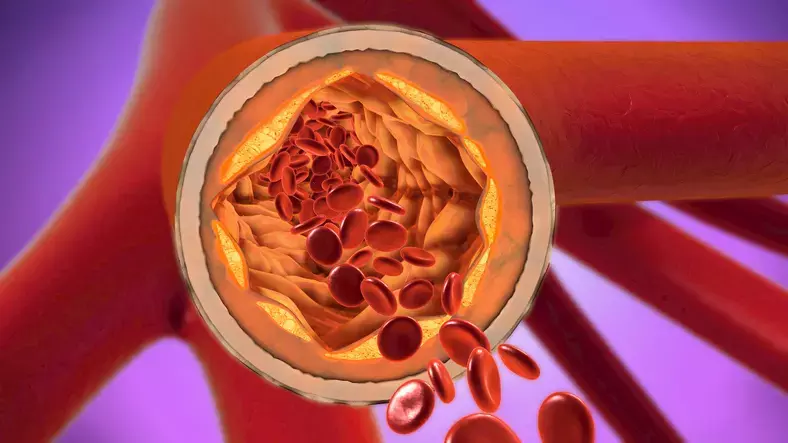- Home
- Medical news & Guidelines
- Anesthesiology
- Cardiology and CTVS
- Critical Care
- Dentistry
- Dermatology
- Diabetes and Endocrinology
- ENT
- Gastroenterology
- Medicine
- Nephrology
- Neurology
- Obstretics-Gynaecology
- Oncology
- Ophthalmology
- Orthopaedics
- Pediatrics-Neonatology
- Psychiatry
- Pulmonology
- Radiology
- Surgery
- Urology
- Laboratory Medicine
- Diet
- Nursing
- Paramedical
- Physiotherapy
- Health news
- Fact Check
- Bone Health Fact Check
- Brain Health Fact Check
- Cancer Related Fact Check
- Child Care Fact Check
- Dental and oral health fact check
- Diabetes and metabolic health fact check
- Diet and Nutrition Fact Check
- Eye and ENT Care Fact Check
- Fitness fact check
- Gut health fact check
- Heart health fact check
- Kidney health fact check
- Medical education fact check
- Men's health fact check
- Respiratory fact check
- Skin and hair care fact check
- Vaccine and Immunization fact check
- Women's health fact check
- AYUSH
- State News
- Andaman and Nicobar Islands
- Andhra Pradesh
- Arunachal Pradesh
- Assam
- Bihar
- Chandigarh
- Chattisgarh
- Dadra and Nagar Haveli
- Daman and Diu
- Delhi
- Goa
- Gujarat
- Haryana
- Himachal Pradesh
- Jammu & Kashmir
- Jharkhand
- Karnataka
- Kerala
- Ladakh
- Lakshadweep
- Madhya Pradesh
- Maharashtra
- Manipur
- Meghalaya
- Mizoram
- Nagaland
- Odisha
- Puducherry
- Punjab
- Rajasthan
- Sikkim
- Tamil Nadu
- Telangana
- Tripura
- Uttar Pradesh
- Uttrakhand
- West Bengal
- Medical Education
- Industry
Induction therapy with infliximab effective against severe Behçet's syndrome

A recent groundbreaking phase 2 trial compared the induction therapies for severe Behçet's syndrome revealed that infliximab is both effective and safe than cyclophosphamide. This randomized controlled trial was conducted between May 2018 and April 2021 focused on patients with major vascular and central nervous system involvement who were particularly a high-risk group within Behçet’s disease spectrum.
The study included a total of 52 patients who met the criteria for Behçet’s syndrome of International Study Group. The participants were randomly assigned to receive either intravenous infliximab (5 mg/kg at weeks 0, 2, 6, 12, and 18) or cyclophosphamide (0.7 g/m² at weeks 0, 4, 8, 12, 16, and 20, with a maximum dose of 1.2 g per infusion). All participants were administered a uniform glucocorticoid regimen throughout the trial.
Infliximab demonstrated a significantly higher rate of complete response which was defined as clinical, biological, and radiological remission coupled with a prednisone dose ≤0.1 mg/kg daily by week 22. Also, 22 out of 27 patients (81%) treated with infliximab achieved complete response when compared to 14 out of 25 patients (56%) in the cyclophosphamide group. The estimated difference was 29.8 percentage points, with a 95% credible interval of 6.6 to 51.7. The posterior probability that at least 70% of infliximab-treated individuals would achieve complete response was 97.4%, while the probability of cyclophosphamide stood at only 6.0%.
Infliximab also demonstrated a more favorable safety profile. Adverse events were reported in 29.6% (8 out of 27) of patients in the infliximab group compared with 64% (16 out of 25) in the cyclophosphamide group. This resulted in an estimated difference of −32.3 percentage points, with a 95% credible interval ranging from −55.2 to −6.6. The rate of serious adverse events was comparable between the two groups, recorded at 15% for infliximab and 12% for cyclophosphamide.
These findings underline the potential of infliximab as a superior induction therapy for patients with severe forms of Behçet’s syndrome, particularly those with vascular or neurological complications. The higher efficacy rate and fewer adverse events suggest that infliximab could be a preferable option over the traditionally used cyclophosphamide, which had a higher burden of side effects. Overall, the study provides strong evidence to favor infliximab as a first-line treatment for severe Behçet’s syndrome.
Source:
Saadoun, D., Maalouf, G., Vieira, M., Trad, S., Lazaro, E., Sacre, K., Plessier, A., Sené, T., Koné-Paut, I., Noel, N., Mekinian, A., Lambert, M., Ribeiro, E., Mirault, T., Mele, N., Dellal, A., Fain, O., Melki, I., Chiche, L., … Cacoub, P. (2024). Infliximab versus Cyclophosphamide for Severe Behçet’s Syndrome. In NEJM Evidence (Vol. 3, Issue 11). Massachusetts Medical Society. https://doi.org/10.1056/evidoa2300354
Neuroscience Masters graduate
Jacinthlyn Sylvia, a Neuroscience Master's graduate from Chennai has worked extensively in deciphering the neurobiology of cognition and motor control in aging. She also has spread-out exposure to Neurosurgery from her Bachelor’s. She is currently involved in active Neuro-Oncology research. She is an upcoming neuroscientist with a fiery passion for writing. Her news cover at Medical Dialogues feature recent discoveries and updates from the healthcare and biomedical research fields. She can be reached at editorial@medicaldialogues.in
Dr Kamal Kant Kohli-MBBS, DTCD- a chest specialist with more than 30 years of practice and a flair for writing clinical articles, Dr Kamal Kant Kohli joined Medical Dialogues as a Chief Editor of Medical News. Besides writing articles, as an editor, he proofreads and verifies all the medical content published on Medical Dialogues including those coming from journals, studies,medical conferences,guidelines etc. Email: drkohli@medicaldialogues.in. Contact no. 011-43720751


